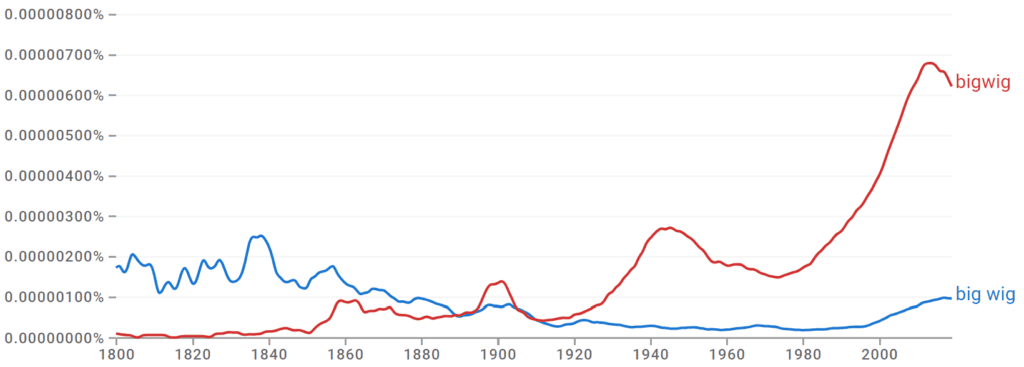The term big wig is one that’s been thrown around for ages. It’s likely you’ve heard it at least once, but do you know what it means? It’s got a pretty funny origin story, and it’s fairly versatile. So, hang tight while I break down the details behind bigwig’s definition and proper usage.
Is It Bigwig or Big Wig?

Although it’s quite fashionable in the grammar world to hyphenate compound words, we opt for the one with no hyphens and no space in this case. The standard and accepted form is bigwig, but big wig as two words is also accepted in certain contexts. Keep those hyphens in your pocket for another day!
Big Wig Meaning Explained

A big wig doesn’t refer to a literal wig, but to an important person, often within a specific organization or field. It’s a slightly informal way to say big shot, head honcho or simply the person in charge. So, if you ever get called a big wig, don’t rush to the nearest store for a hairpiece; it’s a compliment!
Big Wig Origin and Etymology
Now, for the exciting part. The term big wig does have roots in fashion. Back in the 17th and 18th centuries, high-ranking officials and aristocrats like Louis XIII often wore large, ostentatious wigs as a status symbol. The bigger the wig, the higher the status.
It makes me think of Queen Charlotte’s insanely humongous wigs in the recent Netflix hit, Queen Charlotte. After a while, the phrase stuck around, though we’ve traded in the literal wigs for metaphorical ones.
Synonyms for Big Wig
Try using any of these other terms that hold the same, or at least similar, meanings as bigwig.
- Big shot
- VIP (very important person)
- High muckamuck
- Grand poobah
- Big cheese
- Head honcho
- Top dog
- Kingpin
- Major leaguer
I think it depends on the context or topic at hand. For example, if you were talking about the penthouse of a fancy Vegas hotel, you wouldn’t say it’s for bigwigs. You’d probably use a term like VIP.
Big Wig Examples in a Sentence

- The bigwigs at the company decided to change the policy.
- She rubbed shoulders with the bigwigs in the fashion industry.
- As a big wig in the tech world, his words carried a lot of weight.
- I finally got a meeting with the big wig of the department.
- He acted like a big wig, but he was just a junior manager.
- The party was filled with all the big wigs of the city.
- Even the business bigwigs have to follow company protocol.
- She became a big wig in the industry after her breakthrough innovation.
- Despite being a big wig, he was quite down to earth.
Wigging Out Yet?
From actual wigs to metaphorical ones, the term bigwig has come a long way. This phrase is another example of how language evolves over time, reflecting society’s shifts and cultural nuances. Don’t forget to read through some of my other grammar and idiom guides to brush up on silly sayings like this one!
Enjoyed reading about this idiom? Check out some others we covered:
